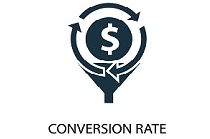Introduction
Event tracking is a crucial aspect of digital marketing that allows marketers to gain valuable insights into user behavior and optimize their strategies accordingly. By tracking specific events on websites or mobile apps, marketers can understand how users interact with their content, identify conversion points, and measure the effectiveness of their campaigns. In this blog post, we will explore advanced event tracking techniques that can help digital marketers take their analytics to the next level.
2. Setting Up Event Tracking

Before diving into advanced event tracking techniques, it’s important to have the basic event tracking set up. This involves adding the necessary tracking code to your website, such as Google Analytics or other tracking tools. Once the tracking code is in place, you can start implementing advanced event tracking techniques.
2.1 Tracking Button Clicks
One of the most common event tracking techniques is tracking button clicks. This allows you to monitor which buttons on your website are being clicked the most and analyze user behavior. To track button clicks, you can add an event listener to the button element and trigger an event when it is clicked.
2.2 Tracking Form Submissions
Tracking form submissions is another important event tracking technique. By tracking form submissions, you can measure the effectiveness of your lead generation efforts and identify any issues with your forms. You can set up form submission tracking by attaching an event listener to the form submit event and capturing the necessary data.
3. Advanced Event Tracking Techniques
3.1 Scroll Tracking
Scroll tracking allows you to monitor how far users scroll on your web pages. This can provide insights into user engagement and help you identify areas where users might be dropping off. To implement scroll tracking, you can use JavaScript to track the scroll position and trigger events based on predefined thresholds.
3.2 Video Engagement Tracking
If your website includes videos, tracking video engagement can provide valuable insights. You can track metrics such as play rate, pause rate, and completion rate to understand how users interact with your videos. This data can help you optimize your video content and improve user engagement.
3.3 Outbound Link Tracking
Tracking outbound links is essential for understanding user behavior beyond your website.
Summary
Advanced event tracking techniques empower digital marketers with the ability to delve deeper into user behavior and make data-driven decisions. By implementing these techniques, marketers can gain insights into specific user actions, measure engagement, and optimize their marketing efforts for better results. This blog post will cover various advanced event tracking techniques, including tracking form submissions, video interactions, scroll depth, outbound link clicks, and more. By the end click to find out more of this post, you will have a comprehensive understanding of how to leverage advanced event tracking to enhance your digital marketing strategies.
- Q: What is advanced event tracking?
- A: Advanced event tracking refers to the use of more sophisticated techniques and tools to track and analyze user interactions and behaviors on a website or digital platform.
- Q: Why is advanced event tracking important for digital marketers?
- A: Advanced event tracking provides valuable insights into user engagement, conversion rates, and overall website performance, allowing digital marketers to make data-driven decisions and optimize their marketing strategies.
- Q: What are some advanced event tracking techniques?
- A: Some advanced event tracking techniques include tracking form submissions, video interactions, scroll depth, file downloads, outbound link clicks, and user engagement with specific elements on a webpage.
- Q: How can I implement advanced event tracking?
- A: Implementing advanced event tracking typically involves adding event tracking codes or tags to your website’s HTML or using a tag management system. You can use tools like Google Analytics, Google Tag Manager, or custom JavaScript to track and capture the desired events.
- Q: What are the benefits of advanced event tracking?
- A: Advanced event tracking allows digital marketers to gain deeper insights into user behavior, identify conversion bottlenecks, measure the effectiveness of marketing campaigns, and optimize website performance to enhance user experience and drive better results.
- Q: Can advanced event tracking help in measuring ROI?
- A: Yes, advanced event tracking can help measure the return on investment (ROI) of marketing efforts by tracking and analyzing user interactions that lead to conversions, such as form submissions, purchases, or other desired actions.


